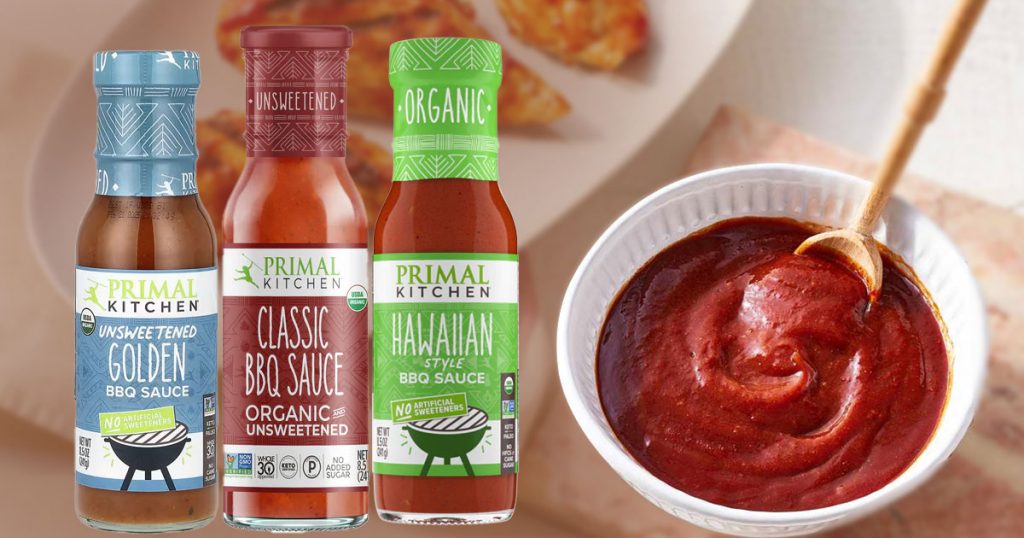Barbecue sauce is a favorite in many American kitchens. Its smoky, tangy, and slightly sweet taste transforms grilled meats, sandwiches, and even vegetables. Many households keep a bottle on hand for marinating, dipping, or adding flavor to quick meals. But the big question remains: is barbecue sauce healthy, or does it belong on the list of condiments to use sparingly?
Nutrition Profile of Barbecue Sauce
Understanding the nutritional content is the first step in knowing if BBQ sauce is good for you. A standard serving delivers about 172 calories per 100 grams, with 42 grams of carbohydrates and 35 grams of sugar. The sugar level equals 70 percent of the daily value, while sodium reaches almost 38 percent. Fat and protein stay minimal at just one gram each.
While the glycemic index is considered low at 55, the heavy sugar load can still raise concerns for those watching blood sugar levels. On the other hand, tomatoes, garlic, and spices in the sauce can provide antioxidants. These compounds support wellness by reducing inflammation and helping the body fight free radicals.
Where Barbecue Sauce Can Support Health
Some benefits exist when barbecue sauce is used wisely. It can make lean proteins like chicken and fish taste better, encouraging healthier eating habits. Natural ingredients such as tomato paste and vinegar add vitamins like Vitamin C and minerals like potassium. A small serving can also add flavor without piling on too many calories, making meals more enjoyable.
The Downside of Popular Brands
Commercial barbecue sauce options can be bad for you. Several widely sold sauces use high fructose corn syrup as the first ingredient. This sweetener contributes to weight gain, poor insulin sensitivity, and increased fat production.
Other brands mix in preservatives, food dyes, and artificial flavors. For example, Kraft Original Slow-Simmered Barbecue Sauce relies on high fructose corn syrup and potassium sorbate. Sweet Baby Ray’s Buff-a-Cue Sauce contains multiple corn syrup sugars and artificial colors. Flavortown Money Honey BBQ Sauce has corn syrup solids and sodium benzoate, while Sonny’s Real Pit BBQ adds corn syrup and food coloring with 14 grams of sugar in just two tablespoons.
Artificial sweeteners are another red flag. G Hughes Smokehouse Original Barbecue Sauce includes sucralose, which may upset gut bacteria and promote inflammation. Over time, these ingredients can reduce the nutritional quality of meals.
Healthier Store-Bought Alternatives
While many brands miss the mark, healthier barbecue sauces are available. One example is zero-calorie sauces designed for special diets. These products use blends of natural spices to create the smoky, tangy flavor without calories, sugar, or sodium. They often suit keto, vegan, kosher, or gluten-free diets.
Because they contain no fillers, sugar, or fat, zero-calorie barbecue sauces can support weight loss or maintenance plans. They allow people to enjoy the taste of barbecue without worrying about added sugars or excess sodium. They are also versatile, working well with roasted vegetables, pizza, or lean meats.
Homemade Healthy Barbecue Sauces
For many people, the best way to have a healthy BBQ sauce is to make it at home. Homemade versions cut out refined sugars and artificial additives. Instead, natural sweeteners like fruit or small amounts of honey can be used.
A healthy homemade recipe is often vegan, gluten-free, soy-free, and paleo-friendly. It reduces calories by about half compared to commercial products. Avoiding high fructose corn syrup and preservatives helps lower blood sugar spikes while offering authentic flavor.
BBQ Pro Shop highlights that homemade sauces rely on whole food ingredients, giving them a fresher taste and a stronger nutritional profile. Without refined sugars, additives, or unnecessary fillers, they fit a variety of dietary needs while still delivering thick, tangy flavor.
A Smoky Takeaway Worth Remembering
Barbecue sauce will never be a superfood, but it does not have to be a dietary villain either. The real value lies in using it with intention. Choosing sauces with fewer additives, less sugar, and more natural ingredients changes the way you experience your meals. Crafting your own healthy version at home not only controls what goes into your body but also reconnects you with the joy of cooking.
When you think about how healthy a BBQ sauce is, do not just weigh sugar grams or sodium numbers. Instead, consider how it fits into your overall approach to food. Every drizzle can either push you closer to balance or tip the scale toward excess. The next time you reach for that bottle, let it be part of a mindful decision that adds flavor to your life without subtracting from your health.
